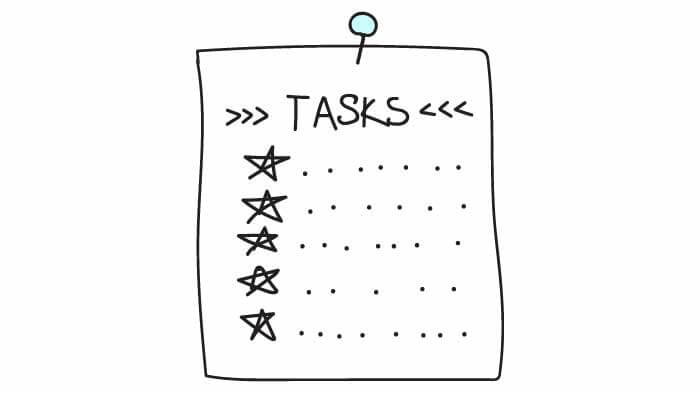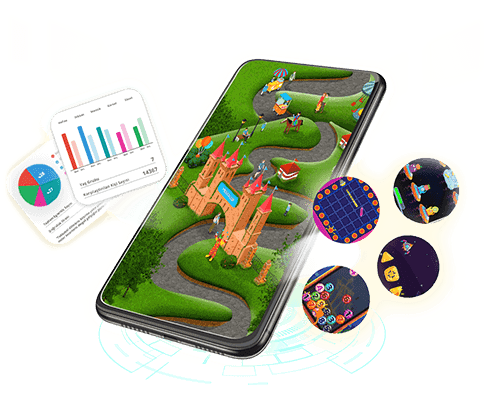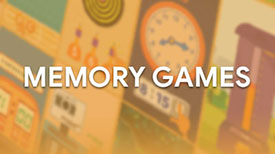What Is Working Memory?
What is working memory, you may wonder. Working memory is a cognitive system with a limited capacity and can retain information for a short period of time. In this way, it helps us how to memorize things fast.
According to some researchers, working memory is different from short-term memory because short-term memory can only hold information, whereas working memory can both hold and manipulate it.
Working memory is important for:
- Reasoning
- Decision-making
- Behavior
- Navigation
- Comprehending new information
- Completing tasks
What Is the Basic Limitation of Working Memory?
The studies show that working memory retains information for a short time, around 10-15 seconds, unless that information is encoded into long-term memory.

It is possible to use information in working memory more effectively because there is a two-sided transfer between working memory and long-term memory.
Therefore, children can transfer the information to long-term memory and retrieve it when they need it with the help of beneficial working memory exercises.
Studies show that poor provisional memory skills affect 15% of children. However, it is easy to improve working memory 3-4 times more with the right strategies! 🧠
MentalUP offers the best working memory exercises to advance your children's memory skills. Only 15 minutes of MentalUP exercises daily can create a huge difference! 🙌
Boost your kids' mental skills with MentalUP, and experience the progress in both their memory abilities and academic success! 💯📈
Working Memory Examples
Here are a few working memory examples from our daily lives so you can get a better idea of what it is.

Imagine that you're hosting a dinner for your friends, and you ask your child for help. The tasks you give are quite simple:
- Put his/her toys in his/her room,
- Move everyone’s shoes to the closet,
- Set the table.
Your child agrees, but when you check on it later, you see the table isn't ready, the shoes are still in the hallway, and all the toys are in the closet. That can't be right 😐
Primary memory is very similar to attention, and not being able to "stay on track" may be a sign of a child with poor working memory rather than a lack of attention.
In addition,
- remembering a phone number,
- recalling directions,
- remembering how to use grammar and sentence structure,
- writing an essay,
- Calculating in our heads are all mental tasks that use primary memory. In other words, it is the ability to keep in mind anything you need to complete a specific task.
As long-term memory is maintained even when we're not thinking of it or using it, primary memory is an active process where we hold and process all the information we need to access at any given time.
Therefore, two activities that both use the same working memory area sometimes conflict because our brain directs attention and prioritizes only one of these activities.
That is why driving a car and talking on the phone at the same time is illegal in many countries because the mind can only concentrate on one of those tasks.
Can You Improve Working Memory?
Most people wonder "can you improve your working memory?" According to researchers, both adults' and children’s working memory skills can be improved over time with proper actions.
So, how can you improve working memory? The capacity of working memory can be strengthened with the right strategies. For example, brain training exercises are beneficial to expand the limits of working memory. Unsurprisingly, practicing is the key to making it happen.
Ways to Improve Working Memory
Here are some useful tips on helping a child with poor working memory.
1. Games to Improve Working Memory
Memory exercises are essential to boost working memory skills to the maximum. MentalUP is a revolutionary educational app for that! A team of academicians, pedagogues, and game designers created MentalUP with the best strategies to improve working memory.
Some of the memory games from MentalUP's best working memory exercises for kids:
2. Break Tasks Into Simple Steps
To support your kid's working memory, give short, simple instructions and make sure the child has finished the first step before progressing to the next.
Repeat instructions if necessary.
3. Keep it Simple
Use clear, specific language when making requests. If necessary, show them what you want your kids to do. This technique is one of the beneficial ways to improve working memory.

4. Use Visuals and Gestures
Use visuals to help children remember the steps involved in a task (e.g. morning routine). Also, encourage your kids to visualize what they are hearing. You can teach them how they can do it at first.
5. Reduce Background Noise and Distractions
Reduce distractions to help the child have to process the instructions and information. In this way, the kid's working memory can hold the essential parts only.
6. Engage Other Senses
Here are some fun activities to improve working memory. Use all five senses to allow information to "stick" (e.g., make your child write math times tables in different fonts, sing them, listen to others say them, trace them in the sand, etc.).
Poor Working Memory Causes in Children
There can be so many reasons for it. But before thinking about complicated situations, don't forget sometimes simple things such as just spending most of their time on online devices can cause it. To remove this reason from the list, you can use a technology addiction test.

Although it is usual for children to have less advanced primary memory skills, children with some special conditions may be less fortunate (e.g., the working memory in children with reading disabilities is poorly functioning).
But first, let's look into the signs of a poorly functioning immediate memory:
- They do not function well during group activities in the classroom,
- They may fail to answer direct questions,
- They find it difficult to follow simple instructions,
- They lose track during complicated tasks and may find letting go of them easier,
- They make place-keeping errors (skipping or repeating steps),
- They appear to be easily distracted or inattentive,
- They demonstrate difficulties with math calculations in their head,
- They have poor organization skills,
- They have trouble with activities that require both storage (remembering) and processing (manipulating information).
In addition, children with ADHD and Dyslexia or any other kind of SLD (Special Learning Disorder) are more likely to suffer from an immediate memory deficit and should be beneficial to use ADHD apps for kids and/or Dyslexia apps for kids.
How to Help a Child With Working Memory Problems
Naturally, children have a smaller primary memory capacity than adults, but what causes working memory problems in child and how to help a child with working memory problems?
Most parents think about "my child has problems with working memory " according to the kid's behaviors against specific instructions.
However, this is not the only sign of poor working memory. Working memory problems child occur in different ways, and parents must be aware of the signs to improve their kids' working memory.
MentalUP offers the best and the most entertaining support against poor working memory! 🥳
With 150+ memory games, it helps kids and adults improve working memory with personalized programs. 🤩🙌
Playing MentalUP 20 minutes a day can create a huge difference in memory skills. 🚀 Today, start benefiting from MentalUP's scientific and pedagogically approved exercises! 👨👩👧







